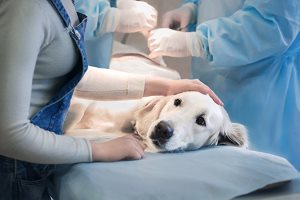Bloomfield Animal Hospital is a trusted name in pets’ preventive, medical,
surgical, and
emergency care in Lakewood, CA. With a 30-year history as a family-owned pet clinic, it provides modern services in a warm, friendly environment. It’s one of the few veterinary hospitals to be
AAHA-accredited.
Dr. Jose Arambulo, owner and chief veterinarian, is experienced in treating eye, ear, and skin disorders and is especially interested in internal medicine, dentistry, and soft tissue surgery. He earned his BS in Medical Technology from the
University of Santo Tomas and his Doctor of Veterinary Medicine from the
University of the Philippines. He completed clinical evaluation for veterinary medicine at
Purdue University in Indiana and was a veterinarian at Banfield and California before acquiring Bloomfield Animal Hospital.
Dr. Arambulo is an active member of the
American Veterinary Medical Association,
Veterinary Information Network,
Southern California Veterinary Medical Association,
Southern California Filipino Veterinary Medical Association, and the
Lakewood Chamber of Commerce.
Our Traveling Surgeon,
Dr. Zachery Smith, is a Diplomate of the
American College of Veterinary Surgeons. He specializes in complex orthopedic and soft tissue surgery. While training, he worked with some of the best orthopedic surgeons in the country. He has lectured both locally and internationally. Dr. Smith plays a leading role at Veterinary Orthopedics of California, which is dedicated to providing high-level surgical services to pets.
Our visiting physician,
Dr. Fred Brewer, is a veterinary cardiologist board-certified by the
American College of Veterinary Internal Medicine. He completed his Bachelor of Science in Psychobiology at
UCLA and earned his veterinary degree from
Cornell University in 2009. Later, he completed a one-year general rotating internship at the California Animal Hospital Veterinary Specialty Group in West Los Angeles and a three-year cardiology residency at Cornell University.





















